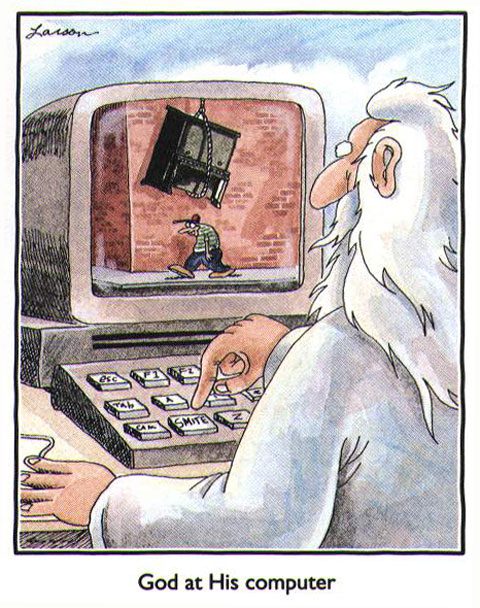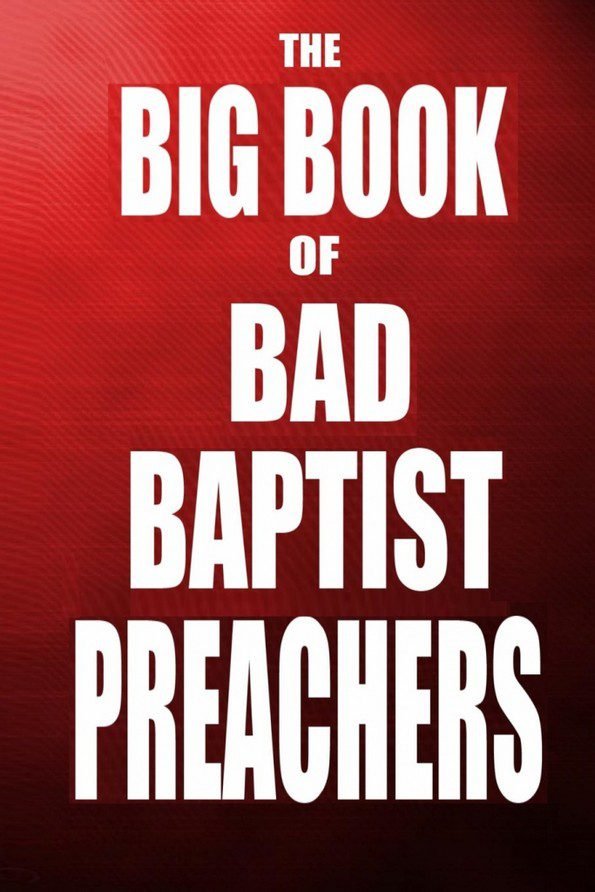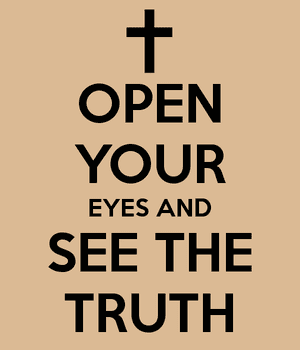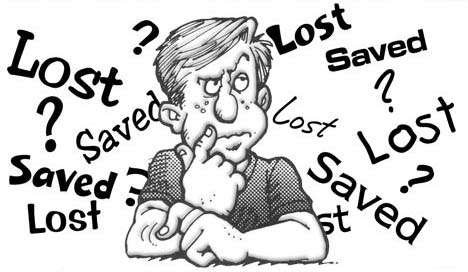
What follows is a guest post by a regular reader of this blog. He is writing this anonymously, and after you read his post you will understand why. If you have a story you would like to share in a guest post, please let me know. It is important that Christians who are struggling with their faith or who have lost their faith know that they are not alone. Telling your story, like the one below, will encourage and help many people.
This is the story of my spiritual migration so far. Like my ancestors who immigrated from Europe to ________ a century and a half ago, I feel like I have crossed the ocean, and don’t know yet where I will settle on this vast continent.
I was raised Southern Baptist. Until about 15 months ago, I would have said we were pretty fundamentalist, but then I started reading The Way Forward (the previous name of this blog) and many other websites. Now I would call all the churches I have belonged to throughout my life as only moderately conservative. My time in the church has been a positive experience, and I’ve seen little of the pettiness, jealousy, domineering, and other bad traits so many others have experienced and written about. I’m not saying it does not exist, just that I have not observed it.
I have especially fond memories of the church I grew up in from the age of 5 until I left for the military at 22. This church wrapped its arms around me and my mother when she became a single mother after my father died when I was 9. Many of the men there filled a void and were positive role models to me. The church gave me my first job, as the church janitor, when I was 15. I made life-long friends there, and if I went back and visited there next Sunday I would still get hugs and handshakes even though I have been gone 30 years. Because of the positive influence the people in that church had on me as a child and young adult, I have always been drawn to working with children in the church. I have been a children’s Sunday school teacher, VBS worker, Awana leader, and led Royal Ambassadors (the Southern Baptists’ version of Boy Scouts).
At my first military assignment, on the west coast, I joined a church and made many friends. One was a girl who was on staff at the church part-time and going to seminary part-time. One of my roommates also went to seminary at this time. Our church called a brand new seminary graduate as pastor, although he was older and was starting a second career. I also read the Bible all the way through for the first time in my life. With many questions and access to those who were studying at seminary, we had many deep conversations as I asked my questions. Many of their answers weren’t particularly satisfying, but I suppressed the dissonance and soldiered on in the faith.
Fast forward 10 years and I was married and living on the other side of the country. After a severe accident, my father-in-law lingered comatose in intensive care for 24 days before finally dying in spite of a coast-to-coast prayer vigil. The fact that my wife never got to have a last conversation with her dad about his salvation motivated her to get intentional about spreading the gospel, so we took the Evangelism Explosion course and went out knocking on doors every week. At the next assignment and church, the evangelism program was called FAITH, and we did that. That church asked me to be a deacon. The ‘examination’ was an open book essay test of my personal beliefs. The military moved me a year later, so my active deacon service was short-lived.
About six years ago my wife amped up her passion and embarked on a master’s degree in Christian apologetics. I thought it was useless to spend money on an actual degree, although the subject interested me too.
In the spring of 2012 I was driving home one day when I heard the PBS segment on Teresa McBain’s coming out as an atheist. It sent chills down my spine. Here was a person raised like me, a Southern Baptist, who had gone on to become a minister, who was renouncing her faith. A few months later, by myself at home, I found a link to the broadcast and listened again. This time I caught the reference to the Clergy Project. I googled it, and found their website. There I found links to former ministers who had left their faith behind. That is where I went over the edge of the waterfall.
Over the next few weeks I read and listened to everything I could find from Dan Barker, John Compere, Ken Daniels, Bruce Gerencser, and Rich Lyons. Bart Ehrman’s Jesus Misquoted was one of the textbooks my wife read for her master’s degree, so I pulled it off the shelf and read it. One day, looking out the window at the sky it all came together and I told myself “it’s just not true.” I didn’t get mad at God. No one at church did me wrong. I just concluded there was not enough evidence for me to continue to believe.
I don’t know when or how I will ever come out to either my family or church. I don’t see bringing up the subject with my wife any time soon. I know she has noticed I don’t insist on saying a blessing before a meal anymore, and that I don’t pull out the checkbook to write a check every Sunday morning, and that I find reasons to not go to the adult Sunday School class (she still teaches a children’s class), and sometimes even admit to just skipping. If she ever directly challenges me I will probably come clean, since I am a terrible liar.
I have two sons who, for better or worse, think their dad can do no wrong, and I don’t want to damage my relationship with them. My teenage son made a profession of faith as a younger child. He enjoys going to the youth camps and retreats, but shows little inclination to be there every time the door is open. He is smarter than his engineer dad and accountant mother put together, so I am hopeful he will reason his way out of Christianity, perhaps with some subtle nudging from me, as he grows older. For now, whenever he says something outrageous I challenge him to examine the evidence and ensure his beliefs and opinions are well founded.
My younger son has been totally brainwashed by his mom, and made his profession of faith and was baptized last summer, about a month after my ah-ha moment. Interestingly, he still holds on to a belief in Santa Claus at an age when all the other kids have figured it out. In fact, we were so frustrated that he wasn’t figuring it out, Christmas before last we told him flat-out that mom and dad were Santa, not some guy who literally comes from the North Pole in a sleigh with reindeer. Nevertheless, a few days ago he asked me how Santa got around to all the houses he had to go to on Christmas Eve. I said “well, let’s do the math. How many houses does he have to go to? How long does it take to go to each house? How many hours are there in the night?” We did not do all the calculations, but hopefully I planted another seed to use reason and evidence. Maybe once he figures out Santa then he’ll apply the same logic to Christianity.
I’ve never talked about spiritual matters with my older siblings, but all the evidence points to me being the last one to get where they have been for about 40 years, so there is no issue there. Both our parents are gone now, so that is also not a problem. Most of our extended family is still Christian, but they live far enough away and we see them rarely enough that there is no need to come out to them.
At church, I had already started working to extract myself even before my epiphany. I had informed our Sunday School director a few months before that I would not continue as a teacher after the current Sunday School year ended in August 2012. My term on the one committee I am on will end this year, and I declined to be chairman of the committee this year. I guess I was too subtle however, since I was surprised to be pulled aside one Sunday morning this past spring and told I had been nominated to be a deacon again. I was given another examination questionnaire to fill out, and asked to pray about it. I thought about using the questionnaire to express my new beliefs as a way of coming out, but decided there was nothing to be gained by that approach. Instead, when they followed up a few weeks later I just said I didn’t think it would be appropriate to go through the process at this time.
I go to the adult Sunday School class about half the time now. Sometimes I find a good reason to not go; sometimes I just skip out. I can do this and admit it to my wife without fear of condemnation because she has always hated adult Sunday School for its lack of depth of discussion and study (remember she went and got a seminary degree just for her own edification), and teaching children is her escape. I agreed with her that there was little value in the Bible study, but always enjoyed the social aspect. When I go now I usually stay quiet unless someone says something so outrageous I can’t stand not to comment. One day the teacher opened the lesson by asking what would cause someone to doubt the existence of God. I suppressed a smile, but did say that when a child is born with massive birth defects I think that would cause someone to doubt God. Nobody else said anything, but heads nodded up and down. Another time the topic was love between husband and wife, and the supporting text came from Song of Solomon 6:3 (I am my beloved’s and my beloved is mine.) Everyone oohed and aahed about how poetic that was and how wise Solomon was until I spoke up said to keep reading to verse 8 (There are sixty queens and eighty concubines, and maidens without number). Silence.
We sit together as a family in the service. Once the sermon starts and the scripture has been read and we sit back down, I use the time reading other parts of the Bible to research and document inconsistencies and fallacies I’ve heard. I do this to bolster my case for the day when I eventually do come out.
I’ll probably continue like this indefinitely, short of someone at the church making one of us mad enough to leave. That would actually be a good cover story to use. If I was still in the military it would be easy…we would eventually move and then just not make an effort to find another church. But for now I am unwilling to perturb the relationship with my wife and sons.
So here I am in _________. I’m standing firmly on dry land, but who knows where I will go from here, how I will get there, when I will go, or who might go with me.
Share This Post On Social Media:








